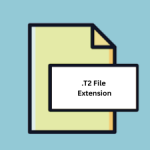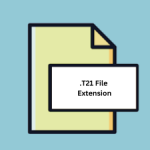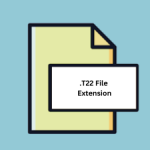.FSA File Extension

Fragment Analysis Data File
| Developer | Applied Biosystems |
| Popularity | |
| Category | Data Files |
| Format | .FSA |
| Cross Platform | Update Soon |
What is an FSA file?
FSA (Fragment Analysis Data) files are commonly used in molecular biology and genetics research to store data generated from fragment analysis techniques. These files contain information about the lengths and quantities of DNA fragments obtained through techniques such as capillary electrophoresis. FSA files are integral to analyzing genetic variations, such as microsatellites, SNPs (Single Nucleotide Polymorphisms), and STRs (Short Tandem Repeats).
More Information.
FSA files emerged in the late 20th century alongside the development of automated DNA sequencing and fragment analysis technologies. They were designed to store raw data efficiently, preserving the integrity of the information obtained from genetic analyzers. Initially, FSA files served primarily as a means to facilitate data analysis within proprietary software environments provided by Applied Biosystems.
Origin Of This File.
The FSA file format was developed by Applied Biosystems, now part of Thermo Fisher Scientific, a prominent provider of scientific instrumentation and reagents. Applied Biosystems introduced this format to accommodate the output of their genetic analyzers, including the widely used ABI PRISM sequencers. These instruments generate raw data during fragment analysis, which are saved in FSA files for subsequent processing and analysis.
File Structure Technical Specification.
FSA files typically consist of header information and binary data. The header contains metadata such as file format version, sample information, instrument settings, and trace parameters. The binary data section stores the actual electropherogram traces representing DNA fragments, along with associated quality scores and other relevant metrics. FSA files adhere to a specific technical specification defined by Applied Biosystems, ensuring compatibility with their software and instruments.
How to Convert the File?
Windows:
- Using Bioinformatics Software: Install bioinformatics software such as GeneMapper or Sequencher on your Windows system.
- Open Software: Launch the installed software and locate the option to import files.
- Select FSA File: Choose the FSA file you want to convert.
- Export or Save As: Once the file is opened, look for options to export or save the data in a different format, such as FASTA or FASTQ.
Linux:
- Install Bioinformatics Tools: Use package managers like apt-get (for Debian-based systems) or yum (for Red Hat-based systems) to install bioinformatics tools like BioPython or EMBOSS.
- Run Conversion Script: Utilize Python scripts or command-line tools provided by the installed bioinformatics packages to convert FSA files to desired formats.
- Command Example: For instance, using BioPython, you might run a Python script that reads FSA files and converts them to FASTA format.
Mac:
- Install Bioinformatics Software: Download and install bioinformatics software such as Geneious or MacVector on your Mac system.
- Open Software: Launch the installed software and navigate to the file import option.
- Select FSA File: Choose the FSA file you wish to convert from your directory.
- Export or Save As: After opening the file, find the option to export or save the data in a different format, such as FASTA or FASTQ.
Android:
- Download Bioinformatics App: Look for bioinformatics apps available on the Google Play Store that support FSA file conversion.
- Open App: Install and open the bioinformatics app on your Android device.
- Import FSA File: Navigate to the import or open option within the app and select the FSA file you want to convert.
- Convert and Save: Follow the app’s instructions to convert the file to a compatible format and save it to your device or cloud storage.
iOS:
- Download Bioinformatics App: Search for bioinformatics apps on the App Store that offer FSA file conversion capabilities.
- Launch App: Install and launch the bioinformatics app on your iOS device.
- Import FSA File: Locate the import or open feature within the app and select the FSA file you wish to convert.
- Conversion Process: Follow the app’s prompts to convert the file to a compatible format like FASTA or FASTQ.
- Save Converted File: Once converted, save the file to your device or preferred cloud storage service.
Advantages And Disadvantages.
Advantages of FSA files include:
- Standardization: FSA files offer a standardized format for storing fragment analysis data, promoting interoperability across different software and platforms.
- Comprehensive Information: They capture detailed information about DNA fragments, enabling precise analysis of genetic variations.
- Compatibility: FSA files are compatible with a wide range of bioinformatics tools and software packages commonly used in molecular biology research.
Disadvantages may include:
- Proprietary Nature: While widely used, the format’s association with specific instrument manufacturers may limit flexibility and interoperability in some contexts.
- Complexity: Understanding and working with FSA files may require familiarity with bioinformatics concepts and specialized software tools.
How to Open FSA?
Open In Windows
Various bioinformatics software packages like GeneMapper, Sequencher, or specialized plugins for programming environments like Python can be used to open FSA files on Windows.
Open In Linux
Bioinformatics tools such as BioPython, EMBOSS, or custom scripts developed using programming languages like Python can be utilized to open FSA files on Linux.
Open In MAC
Bioinformatics software such as Geneious, MacVector, or using Python scripts with relevant libraries can help open FSA files on Mac.
Open In Android
Due to the specialized nature of FSA files and the complexity of their analysis, opening them directly on mobile platforms may be challenging. However, some bioinformatics apps may provide limited support for viewing or analyzing FSA files.
Open In IOS
Due to the specialized nature of FSA files and the complexity of their analysis, opening them directly on mobile platforms may be challenging. However, some bioinformatics apps may provide limited support for viewing or analyzing FSA files.
Open in Others
Due to the specialized nature of FSA files and the complexity of their analysis, opening them directly on mobile platforms may be challenging. However, some bioinformatics apps may provide limited support for viewing or analyzing FSA files.













